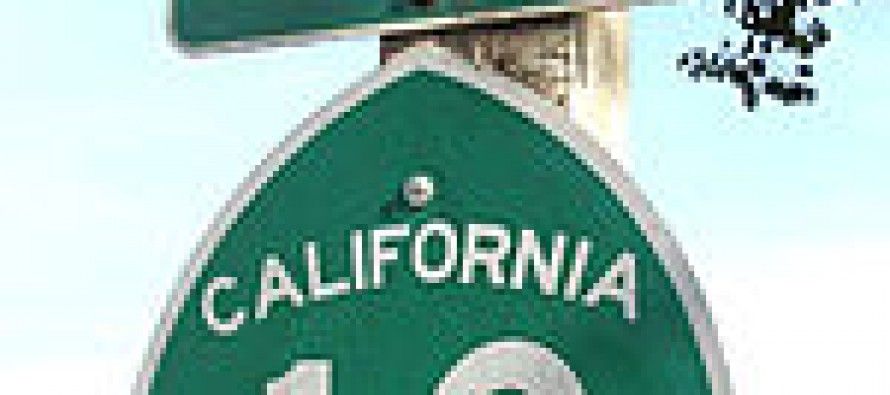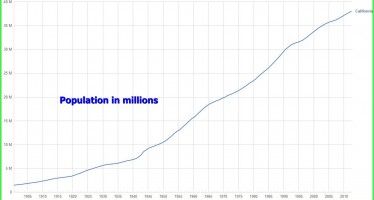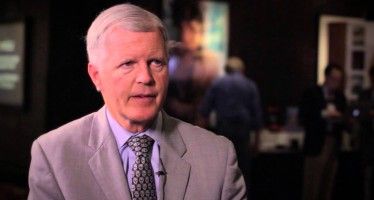Bill could double car registration fees

 A bill that could double California counties’ vehicle registration fees has passed the Legislature, and is awaiting a signature or veto from Gov. Jerry Brown.
A bill that could double California counties’ vehicle registration fees has passed the Legislature, and is awaiting a signature or veto from Gov. Jerry Brown.
Assembly Bill 2393, by Assemblyman Marc Levine, D-San Rafael, authorizes counties to charge annual $2 registration fees on noncommercial vehicles and $4 on commercial vehicles. That represents a 100 percent increase from the current county fees of $1 on noncommercial vehicles and $2 on commercial vehicles.
The additional revenue would increase funding for the state’s Cal-ID fingerprint identification program. Forty five of the state’s 58 counties have imposed the fee, which has not increased for more than 15 years, according to Levine.
Critics charge that AB2393 violates the two-thirds vote requirements for new taxes that is mandated by Propositions 13, 26 and 218.
Levine: need to increase fingerprint ID funding
Levine made his case for the fee hike to the Senate Transportation and Housing Committee on June 17.
“By using cutting edge technology, the Cal-ID program has proven to be remarkably successful,” he said. “The program has helped reduce DOJ [Department of Justice] workload since inked fingerprint cards no longer have to be scanned. Also, officer and community safety have increased as the program provides rapid and accurate identification of the people that law enforcement encounters in the field.
“However, enhancements in technology and inflation have reduced the purchasing power of the fees collected for this program. AB2393 gives local law enforcement agencies the tools they need to make their communities safer. It’s also important to emphasize that this bill … simply provides counties with the discretion to increase their fees if they see fit.”
Cory Salzillo, representing the bill’s sponsor, the California State Sheriffs Association, said the current fee brings in about $30 million statewide annually.
“There are reporting requirements in existing law that would be carried through with this bill to ensure accountability in the spending of the funds,” he said.
Taxpayer advocate: bill violates constitution
David Wolfe, legislative director for the Howard Jarvis Taxpayers Association, argued that the bill violates provisions of the state constitution.
“We believe special taxes approved on the local level, as this bill would do, require a two-thirds vote,” he said. “And there’s nothing in the bill that indicates or states that a two-thirds vote is needed.
“We believe that this case is bolstered by Proposition 26, which was approved by voters in 2010.” He said Prop. 26 said that, “For this to be an appropriate regulatory fee, which I think the author and supporters would claim, there either needs to be a direct benefit to the fee payer or this needs to be a regulatory fee.
“In order for this bill to meet that standard and not be a special tax that would require a two-thirds vote, everybody paying the fee would either have to be a perpetrator or a victim of a vehicle crime. Clearly, this fee goes against everyone who is a vehicle owner, not just perpetrators or victims of vehicle crimes. As such we do believe this is a special tax on the local level.”
John Caldwell, a lobbyist for the Association of California Car Clubs, said car owners are already paying about $36 million in extra fees for law enforcement.
“The insurance code charges every driver for every car $1.80 for law enforcement for fighting fraud,” he said. “So that’s 20 million cars times $1.80. The Department of Insurance gives that money to the DAs and police departments, and they use it themselves. So it’s not like the drivers of these cars are not paying for helping law enforcement. We think this is one too much on people who are already paying a lot for multiple cars.”
There was no discussion by the committee except a comment from its chairman, Sen. Mark DeSaulnier, D-Concord, who said he’s happy to support the bill “in spite of Mr. Wolfe’s compelling testimony, and my respect and affection for him.”
Republican opposition
There also was no debate when the full Senate approved the bill. But several Republicans argued against it on the Assembly floor on Aug. 11.
“This bill doubles the fees. And it does so without two-thirds [voter approval], which makes it a violation of Prop. 218,” said Assemblyman Tim Donnelly, R-Twin Peaks. “It makes it a back door tax increase. I think it’s something we should stand against here on this floor, because not only do we have this, but we also have a hidden gas tax coming down the highway for the average Californian.”
He was referring to the state cap-and-trade gas-tax increase of about 15-cents a gallon that will hit motorists on Jan. 1. It’s part of the implementation of AB32, the Global Warming Solutions Act of 2006, which then-Gov. Arnold Schwarzenegger signed into law.
“You know, this will hurt the working poor the most,” Donnelly said. “We need people that want to go to work in this state. So this right here is something that will make it more difficult to get Californians back at work at a critical time.”
Donnelly was echoed by Assemblyman Donald Wagner, R-Irvine. “This bill violates Propositions 13, 26 and 218, which require two-thirds votes,” said Wagner. “Those are important protections that your constituents and mine have repeatedly asked to have in the law. By supporting this bill we are essentially thumbing our nose at our constituents.
“I don’t urge that ever, certainly not in an election year. There are three – three – statements by our voters out there telling us procedurally not to do this. I urge that we take them at their word and not raise their taxes again.”
Also opposed was Assembly member Shannon Grove, R-Bakersfield. “Under Prop. 218 there’s no new fees to be allowed except for sewer, water, garbage collection, and it must receive voter approval,” she said. “This measure is based on a supposed connection between vehicle registration and automatic fingerprint identification system. Common sense tells you that there’s no nexus between the two.
“This is an issue that is facing the state of California: We are here instituting fees [which] are truly taxes, and to increase these fees on our citizens right now when taxes are the highest in the state of California.”
Levine: not unconstitutional
Levine countered that his bill doesn’t violate those propositions’ two-thirds vote requirements because AB2393 doesn’t actually raise vehicle registration fees. “What it does is empower our counties to decide locally how to set these fees,” he said.
He was backed at the state legislative level by the committee’s legislative analysis of the bill. But the analysis also left open the question of constitutionality at the local level:
“[T]his bill is a majority vote measure in the Legislature because it does not directly result in a taxpayer paying a higher tax. Instead, this bill delegates to county boards of supervisors the authority to impose a vehicle registrations [sic] fee. Ultimately, county counsels will have to determine the appropriate vote threshold at the county level, where a two-thirds vote of the electorate may be required.”
Democrats support
Two Assembly Democrats ignored the constitutionality question, focusing instead on how the fee hike revenue would be spent.
“By all accounts the fingerprint ID program supported by the nominal registration fees has been very successful,” said Assembly member Bonnie Lowenthal, D-Long Beach. “This additional one dollar fee will allow the counties the opportunity to advance the programs with new technology.”
Assemblyman Rob Bonta, D-Oakland, agreed. “The Cal-ID system is crucial for giving law enforcement 21st century tools,” he said. “These advancements in technology allow officers to fingerprint and identify individuals while in the field rather than having to waste time scanning inked fingerprint cards.
“This improves officer safety and provides a benefit to the entire community. Increased funding will help ensure the continued operation of this valuable and effective system.”
Brown had yet to sign or veto AB2393 as of Thursday morning.
Related Articles
Enviros fight over CA Spotted Owl
The California Spotted Owl faces extinction unless logging is banned in forests in which “the small and declining owl
Why CA has an affordable housing crisis
What a long strange trip it’s been for the Pebble Beach Company since it unveiled its Del Monte Forest development
Video: The wisdom of Milton Friedman
If Milton Friedman were alive today, what words of wisdom would he impart on us? CalWatchdog.com editor-in-chief Brian Calle asks




